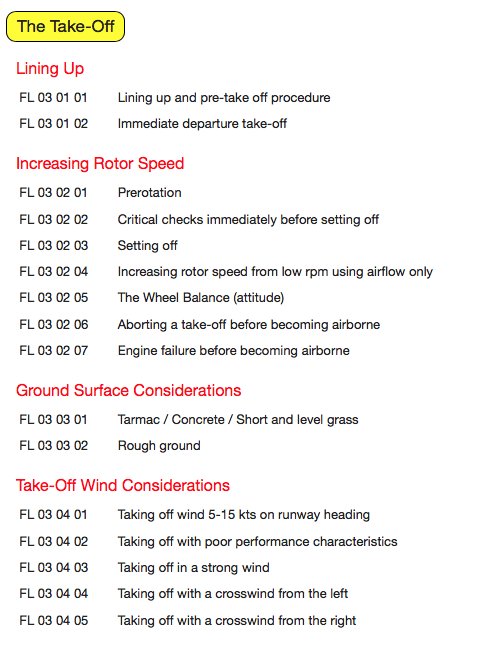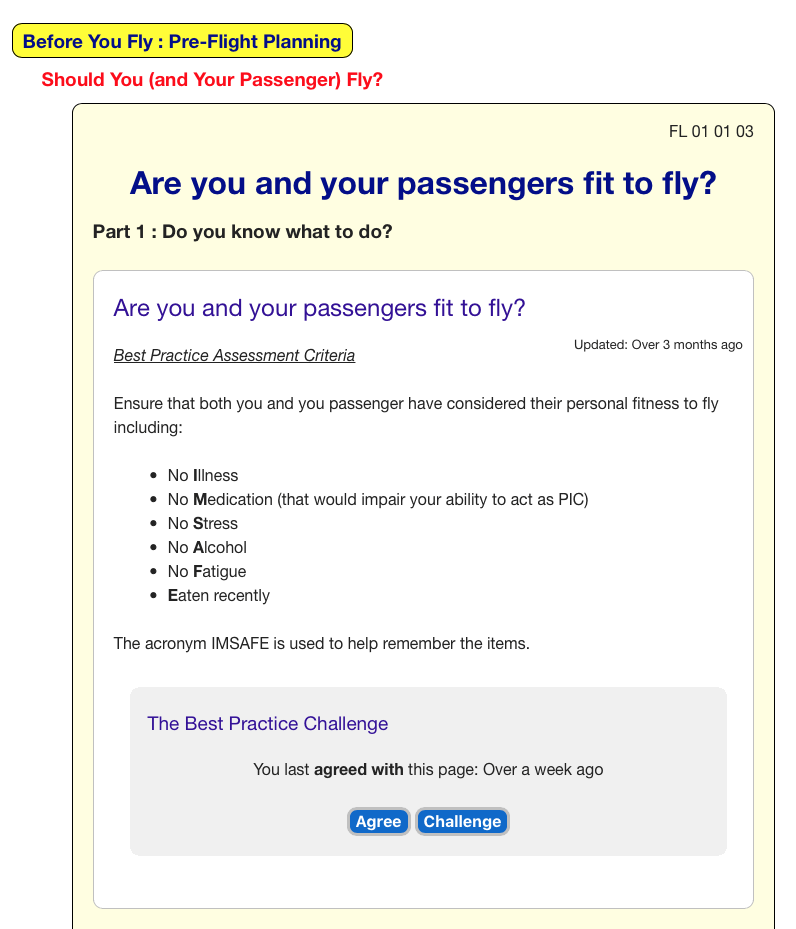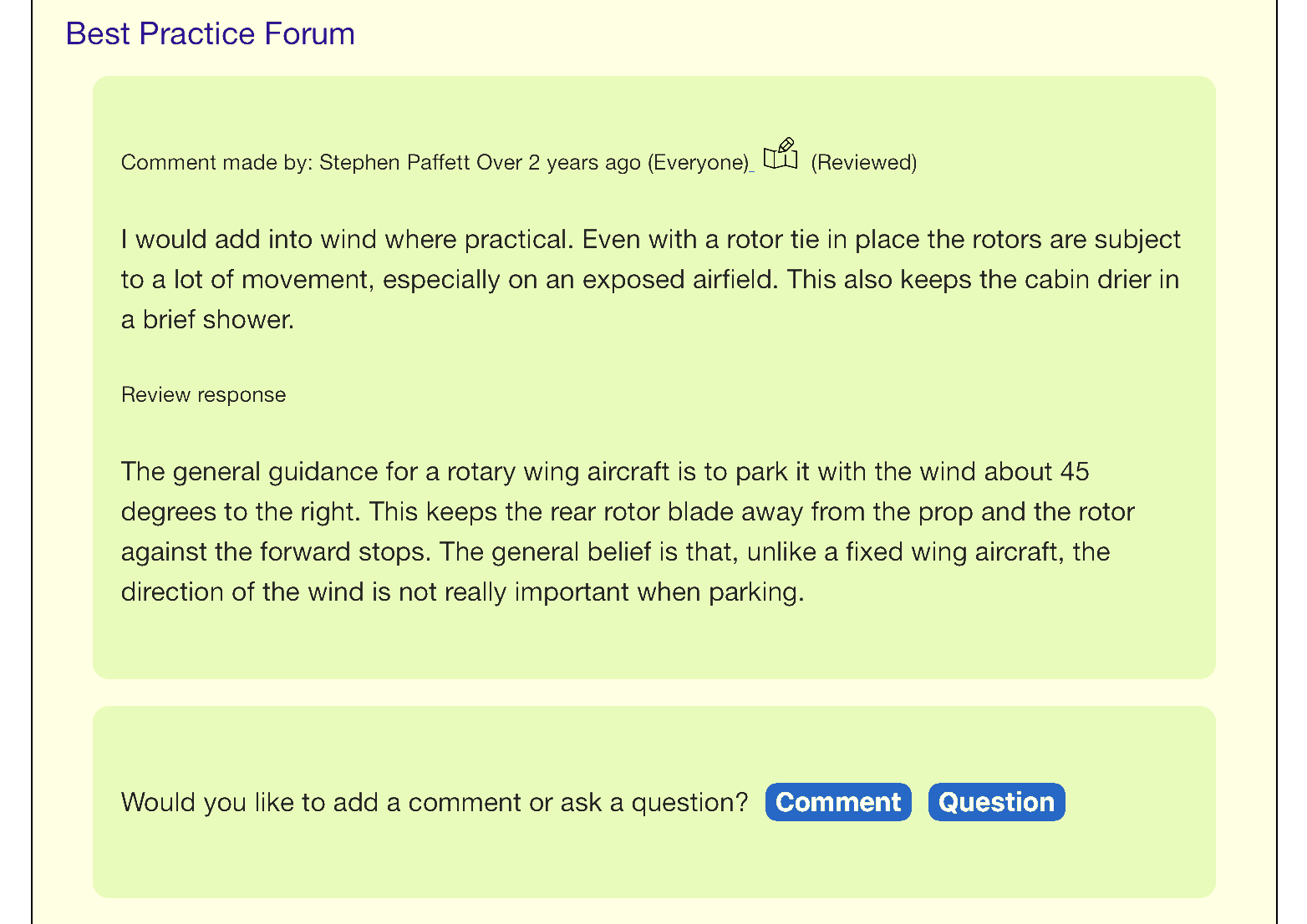How do we define Best Practice?
In 2013, at the start of the process, we listed each major stage of a gyroplane flight in the following headings.

For each heading, we listed the elements and scenarios that a gyroplane pilot might encounter during their lifetime of flying. For example:

For each scenario we asked a number of experienced gyroplane instructors and examiners around the world how they would assess a pilot during a check ride
- What would be considered good flying
- What would be considered below competent standard.
We saved this list of scenarios, and a consolidation of the answers from the instructors and examiners in an online database.
We call this database The GyropediaTM.
What Makes Best Practice "Best"?
We believe:
- Every person that flies a gyroplane has a different set of experiences, and that each and every experience is valuable.
- There are often a number of different techniques to handle a scenario, each with their merits.
- A lot of knowedge can be applied from other forms of aviation - but a Gyroplane is not a fixed wing aircraft, or a helicopter - a Gyroplane has its own flying characteristics and it is vital for an existing pilot to understand and absorb the differences.
- A significant factor in accidents is lack of regular flying. The average pilot flies between 20 and 50 hours a year. Why? Because, despite best intentions, life simply gets in the way.
- Safe flying is more about the decisions that you make, than the handling of the gyroplane controls.
Our objective is to ensure that we canvass as much experience as we can, collate all the different techniques and propose the "Best Practice" way of handling each scenario.
The techniques we recommend may not always be the most efficient, or the fanciest, or the most obvious. Our definition of "Best Practice" is the technique that provides the greatest margin for error for inexperienced pilots.
The Best Practice Challenge
We consider the experience of every person who opts to share to their knowledge. We invite all gyroplane instructors to participate in the Best Practice Challange.
The "Best Practice Challange" is facilitated within the Gyropedia. When a Best Practice Definition is displayed, there are two buttons that we ask an instructor to consider.

- If our definition matches the technique that an instructor already uses, or the instructor has decided to adopt that technique, we ask them to click the Agree button. This tells their peer group and their students that they are teaching Best Practice for that component of a flight.
- If the instructor teaches an alternative technique and, based on their experience they believe this to be a superior approach, we ask them to click the Challenge button and tell us about their technique. This triggers a review of the Best Practice definition which may incorporate all or part of their technique.
- Of course, an instructor is free not to express their opinion - the Best Practice Challenge is an "opt in" process.
The Best Practice Forum
In addition, we provide the Best Practice Forum, a facility for everyone to express their opinions on, add comments to, or ask questions about, any of the elements in the Best Practice Definition.
This is a moderated forum and it allows for online discussions of topics.

Interaction with Best Practice
In addition to learning Best Practice online
- Student Pilots will learn the Best Practice Techniques if they are taught by Instructors who have opted in to the IAPGT process and use the Gyropedia tools in their teaching.
- Pilots will learn the Best Practice Techniques if they participate in the Pilot Continuous Development Process
- New instructors will learn the Best Practice Techniques if they prepare for their instructor course using the IAPGT Instructor Training Material.
- Existing Instructors can learn about the Best Practice Techniques by participating in the Gyroplane Instructor International Development Process.
- Everyone can learn the Best Practice Techniques by participating in Best Practice Symposium Events.
The Best Practice Definitions, The Best Practice Challenge and The Best Practice Forum are available for free to people who join our network.